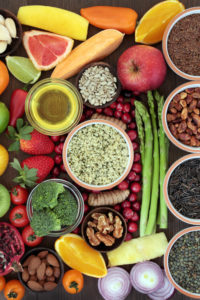Kidney Stones: How to Manage the Pain and Discomfort
The first thing most people think about kidney stones is that passing one can be very painful. But a number of factors determine if you are going to have a kidney stone, how it will make its way out of the urinary tract, and what you can do to minimize the discomfort.
Mineral Concentration
Kidney stones develop when minerals in the urine become concentrated and form pebble-like lumps, usually made of calcium, in the kidney. They may eventually move through the ureter and urethra.
The ureter is the tube that drains urine from the kidney to the bladder; the urethra is the tube through which urine travels on its way out of the body. Eighty percent of stones are made of calcium, but the body can also produce stones caused by ammonia, uric acid, and cysteine (an amino acid that helps build protein).
The most common contributing factor to kidney stones is dehydration, according to Washington University School of Medicine in St. Louis. Urine is a solution, but with dehydration, it cannot dissolve potential particles that develop into stones.
Get Your Nutrition Guide
Do you want to eat foods that help you feel better, stay slim, and avoid diet-related diseases? Do you want to be healthier by eating delicious “super” foods?
If so, claim your FREE copy, right now, of the definitive nutrition guide on living a longer, healthier, happier life.
It’s Not the Stone
It’s not the stone itself that causes pain. In fact, if a stone can sit in the kidney or ureter without causing a blockage, there may be little or no pain. But when a stone moves around in the kidney or gets stuck in the ureter and blocks the passage of urine, the blockage can cause the following symptoms:
- Sharp stabbing pain in the back or side
- Pain that comes and goes
- Nausea, vomiting
- Frequent urination
- Painful urination
- Blood in the urine
- Fever, but only if an infection is present
The smaller the stone, the more likely it will pass on its own. Eighty percent of kidney stones fall into that category (less than 4mm), but it takes an average of 31 days to happen. If the stone is 4-6mm, it will pass about 60 percent of the time. If greater than 6mm, the stone will pass about 20 percent of the time. In most cases where the stone is greater than 4mm, a medical procedure is necessary.
Kidney Stones: By the Numbers
1: Number of people out of 11 in U.S. who will develop a kidney stone
30-60: Age at which most people are affected
31: Number of days it takes for a stone less than 4mm to pass
50 Percent of people who have a second stone within four years
80 Percent of stones 4mm or less that will pass on their own.
Managing the Pain
Medications include aspirin, acetaminophen, prescription pain medications, diuretics, and antibiotics. Drink plenty of fluids to increase urinary volume that may help pass the stone. Stay as active as possible. Walking helps. Your doctor may prescribe a drug that dilates the ureter, which allows the stone to pass. Taking a hot shower or sitting in a tub of warm water offers temporary relief.
When to See a Doctor
Notify your doctor if you think you have a kidney stone. He or she may recommend some of the measures above, and may ask you to capture a stone if it passes so it can be analyzed. If you’ve already tried at-home measures and the pain is still severe, it’s time to see your doctor or go an emergency room.
Blood tests can show calcium levels, glandular problems, and kidney dysfunction. A CT scan can identify a kidney stone, and ultrasound scans detect swelling of the kidney and/or the ureter—an indication that the stone is blocking the flow of urine.
Under the supervision of a doctor, you might be able to treat a kidney stone at home. If the stone is too large, the pain too severe, infection is present, or there is significant bleeding, the kidney stone will have to be removed surgically or broken into fragments that can move through the urinary tract.
Preventing Kidney Stones
About half the people who have a kidney stone will never have another incident. For those who have recurring stones, the prognosis depends on the cause and on how well the patient responds to prevention guidelines. They include drinking more fluids, eating less protein, reducing the intake of salt, and increasing the intake of citrate (lemons, oranges, grapefruit), a chemical that inhibits the production of kidney stones.
SEE ALSO:
Natural Remedies for Kidney Stones
Top 10 Foods That Cause Kidney Stones
Natural Remedies for Kidney Stones
Kidney Stone Treatment: It Can Range from Home Remedies to Hospital Stays
Kidney Stone Diet: Can Foods You Eat—and Avoid—Help Prevent Kidney Stones?
Kidney Pain: What’s Behind It?
The post Kidney Stones: How to Manage the Pain and Discomfort appeared first on University Health News.
Read Original Article: Kidney Stones: How to Manage the Pain and Discomfort »
Powered by WPeMatico


